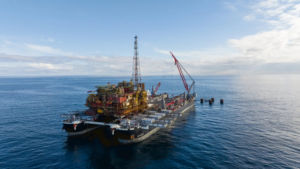The North Sea oil and gas industry spent £1.6 billion on decommissioning redundant wells and infrastructure last year, more than in any of the previous five years, the North Sea Transition Authority (NSTA) states.
There is also a significant opportunity with £21 billion of UK offshore decommissioning spending forecast in next decade.
The industry spent a total of around £8 billion from 2017-22, whilst activity levels are expected to remain high, with about £2 billion a year forecast to be spent on decommissioning in the next decade, representing a “massive opportunity” to keep developing skills and experience in the basin and help the supply chain win lucrative contracts overseas by reinforcing its status as global leader, in accordance with the latest NSTA decommissioning cost and performance report.
According to the report, UK suppliers are in line to secure around 70% of the work associated with UK North Sea decommissioning projects listed in Supply Chain Action Plans (SCAPs) lodged with the NSTA last year.
This indicates the sector is living up to its North Sea Transition Deal pledge to ensure at least half of spending on decommissioning projects goes to the UK supply chain, as well as meeting its legal obligation to clean and remove infrastructure once fields stop producing.
Achieving further improvements will be challenging, NSTA believes, however, in the face of factors including heightened demand for equipment, vessels and services from other regions and sectors, such as offshore wind – which have pushed up prices, taking the total cost estimate for decommissioning to £40 billion.
The authority believes that the industry can overcome these hurdles and meet its cost-efficiency target – lowering the estimate to £33.3 billion by end-2028, and emphasizes that operators must strive to deliver their agreed schedules and commitments, work even more collaboratively with the supply chain and share their plans earlier, ensuring resources are available at the right time.
“The North Sea decommissioning sector is highly active and productive, and the industry is ideally placed to realise the massive £21 billion opportunity which will come its way over the next 10 years,” said Pauline Innes, NSTA director of supply chain and decommissioning.
“However, operators must redouble their commitment to collaborate with the supply chain and plan even more effectively if they are to overcome challenging market conditions and remain competitive on cost. The NSTA will continue to use its powers and influence to support the industry as it strives for continuous improvement, including through the development of new benchmarks.”



